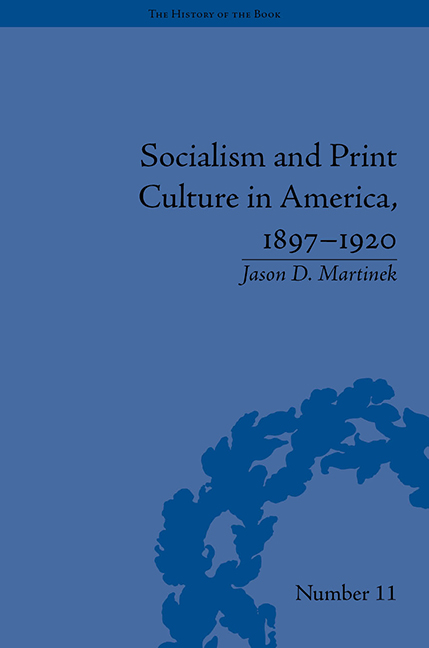Book contents
- Frontmatter
- CONTENTS
- List of Figures and Tables
- Acknowledgements
- Introduction: ‘Workers of the World, Read!’
- 1 ‘The Workingman's Bible’ and the Making of American Socialism
- 2 Charles H. Kerr & Company and the Americanization of Marxian Socialism
- 3 Activist Readers and American Socialists' Print Culture of Dissent
- 4 How the Socialist Party Created a Print Culture of Dissent without a Party-Owned Press
- 5 Information Management and the Socialist Party's Information Department and Research Bureau
- 6 Annotations on the Failure of Socialism in America
- 7 Conclusion: What a Book Cannot Do
- Notes
- Works Cited
- Index
Introduction: ‘Workers of the World, Read!’
- Frontmatter
- CONTENTS
- List of Figures and Tables
- Acknowledgements
- Introduction: ‘Workers of the World, Read!’
- 1 ‘The Workingman's Bible’ and the Making of American Socialism
- 2 Charles H. Kerr & Company and the Americanization of Marxian Socialism
- 3 Activist Readers and American Socialists' Print Culture of Dissent
- 4 How the Socialist Party Created a Print Culture of Dissent without a Party-Owned Press
- 5 Information Management and the Socialist Party's Information Department and Research Bureau
- 6 Annotations on the Failure of Socialism in America
- 7 Conclusion: What a Book Cannot Do
- Notes
- Works Cited
- Index
Summary
If American socialists in the Progressive Era had a central axiom, it was ‘Workers of the World, Read!’ Indeed, for turn-of-the-twentieth-century socialists, reading was a radical act. It engendered grass-roots political activism, subverted dominant values and, in their estimation, provided a viable means of securing a new moral order, in which human beings came before the almighty dollar. An 1895 article in the popular socialist newspaper, the Appeal to Reason, underscored what was at stake for the socialist movement: ‘Read the books on political economy that your masters do not want you to read. The truth will make you free – a condition you do not even know of.’ The printed word, they believed, was ‘mental dynamite’, razing ignorance and opening the mind to the Cooperative Commonwealth.
This book tells the story of American socialists' use of literacy and how it shaped the larger contours of the socialist movement. It focuses on Debsian socialism in particular, the movement that coalesced around Eugene V. Debs, five-time socialist candidate for president of the United States (1900, 1904, 1908, 1912 and 1920). It covers the period between the transformation of the American Railway Union into the Social Democracy of America in 1897 to the eclipse of the American socialist movement in the late 1910s. Although Debs is an important figure in the story, this book broadens the focus to include a number of instrumental writers, editors and publishers who contributed to what I refer to throughout the book as a rich print culture of dissent.
- Type
- Chapter
- Information
- Socialism and Print Culture in America, 1897–1920 , pp. 1 - 10Publisher: Pickering & ChattoFirst published in: 2014



